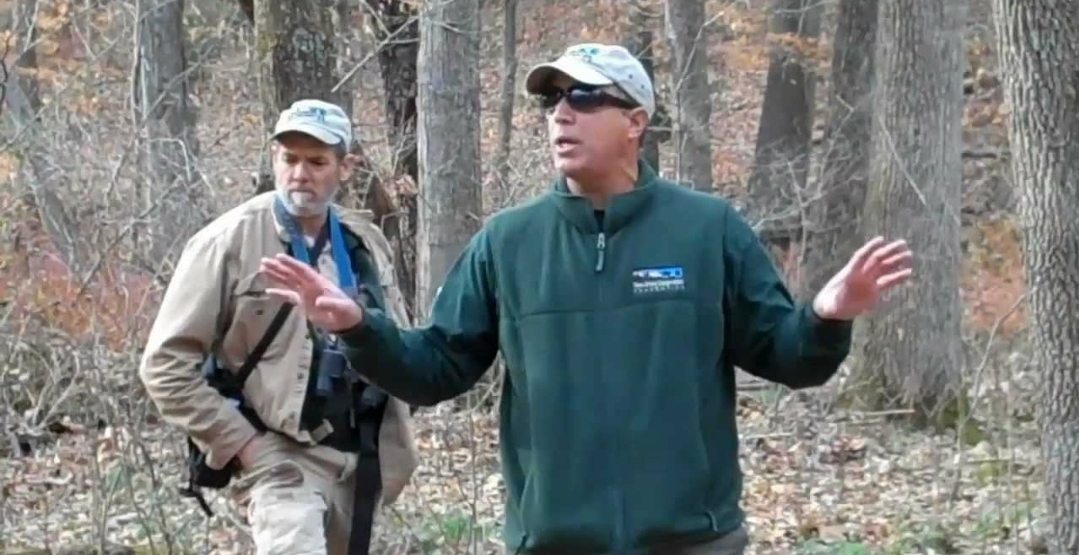In the immensely urbanized State of New Jersey, there are few intact ecosystems left.
Yet, there is still green in the garden state. In South Jersey, the Pine Barrens reign supreme. Taking up 22% of the state, the Pine Barrens are vast beyond belief. Its 1.1 million acres makes it larger than many national parks.
However, not all of it is protected.
The last open spaces of New Jersey are always under threat of development. No one knows this better than Dr. Emile DeVito. Dr. DeVito has been the director of science and stewardship and the director of conservation biology for the New Jersey Conservation Foundation since 1989.
His involvement in conservation goes beyond ecological restoration as he also advocates on behalf of several conservation groups that fight development within the Pinelands.
One threat to the Pinelands that Dr. DeVito emphasized was pipe lines. He, as well as many others within his field, fought the South Jersey Gas pipeline. This proposed pipeline would have traveled through 10 miles of protected Pinelands forest area.
While the forests it was supposed to go through are protected, DeVito clarified that they aren’t invincible to development.
“It’s not the preservation area, it’s the second-highest ranked area. There’s the preservation area which has the most stringent protection followed by the forest area,” he said.
The difference is critical as the sector in question lies within the forest area of land that is much easier to get a permit to build on. The protections awarded to this land derives from the Pinelands Protection Act of 1979, which was a pivotal moment in New Jersey conservation.
“One of the things that’s not allowed is new transmission lines and pipelines,” Dr. DeVito said. He went on to explain that the New Jersey Pinelands Commission initially disapproved of the construction. This commission is yet another facet of the Pinelands Protection Act.
The Pinelands Commission‘s 15-member board consists of seven members who are appointed by the New Jersey Governor. One member appointed by each of the seven Pinelands counties, and one member appointed by the U.S. Secretary of the Interior. The gubernatorial appointees are subject to the review and consent of N.J. Senate.
The Pinelands Commission have the power to approve and halt the development of the state’s most pristine forests.
“Initially, they didn’t approve the pipeline, but Governor Christie threw off the people who voted against it and put in people who approved it,” DeVito said.
This was followed by a lengthy court case that spanned until March of 2019.
“It was in the courts, but it got held up for so long that gas prices have dropped, and the BL England coal power plant was dismantled, so the whole project is basically dead,” he said.
The BL England power plant in Egg Harbor was defending South Jersey Gas in the lawsuit. When that plant got shut down, South Jersey Gas lost the lawsuit.
Devito mentioned another pipeline that was proposed in the northern part of the Pinelands, through the Fort Dicks area. It is the Southern Reliability Link, a 30-mile transmission line that would go through areas of protected Pinelands.
“The reason they were able to get an approval in the Pinelands is that they claim it’s essential for the fort. But the initial plan didn’t even have a hook up to the fort,” DeVito said.
DeVito believes the real reason gas companies want to build the pipelines is not for the public, but to get the oil to the coast.
“They want to ship all the gas overseas, and they say it’s all about making sure there’s enough gas for residents, but it’s all a big lie,” he said.
This is because there is no shortage of gas in N.J. However, the overseas markets which lack the fuel provide gas companies with substantial profit margins. The Southern Reliability Link is surrounded by immense controversy as construction has begun in unprotected areas.
DeVito said that it is for leverage in court. “They built it in Ocean County so they can say that because half is built already, they are entitled to completing it.”
According to Burlington County Times, “opponents blasted New Jersey Natural Gas’ plans to begin construction work, describing it as a blatant disregard for the legal process. They argued that by building a significant portion of the line, an appeals court would be less likely to order them to stop and undo the work.”
The court case continues, and public groups like Empower NJ still rally against New Jersey Natural Gas.
The pipeline that DeVito has been personally working on the most is the PennEast Pipeline in West Jersey, along the Delaware River. Recently DeVito celebrated a significant victory in Federal Court.
“We just won a pretty big victory in Federal Court, because they wanted to go through 41 preserved properties. We’ve been preserving lands in west Jersey for 30 years. But they screwed up when they wanted to go to those areas,” DeVito said.
The supply-chain and logistics of these pipelines care not for preserved lands. The route these pipelines take are straight lines that maximize efficiency, yet time and time again, the pesky Pines gets in the way.
The Federal Energy Regulatory Commission gave the PennEast Pipeline a certificate of compliance, yet DeVito shined a light on a disturbing reality.
“The Federal Energy Regulatory Commission is corrupt because gas companies pay their employees instead of the government,” he said.
DeVito, along with the New Jersey Attorney-General appealed their decision in federal court on the basis that the lands being built on were preserved with open-space money. NJ.gov says that open space money called the “Green Acres Program” are there to acquire property for recreation and conservation purposes and to develop outdoor recreational facilities.
“The pipeline company has to appeal this to the supreme court, which could take a long time,” he said.
If the supreme court does not take the case, then the only option for the gas companies is to get legislation to give the Federal Regulatory Commission more power. But with a majority Democrat House of Representives, this doesn’t seem currently feasible.
“Pineys” can take solace in the fact that for the foreseeable future, the PennEast Pipeline is no-go, but the threat of pipelines aren’t fought as hard in other states.
New Jersey is densely populated, which means there are more public groups to fight against gas companies. In places like Alaska or Montana, there are vast amounts of pristine land that are at higher risk because of the lack of population.
People like Dr. DeVito will continue to fight for the unique ecosystem that is the Pine Barrens, but it’s up to the rest of us to decide if it’s worth it.
For comments/questions about this story, email [email protected] or tweet @TheWhitOnline


























































































































































!["Working with [Dr. Lynch] is always a learning experience for me. She is a treasure,” said Thomas. - Staff Writer / Kacie Scibilia](https://thewhitonline.com/wp-content/uploads/2025/04/choir-1-1200x694.jpg)









































